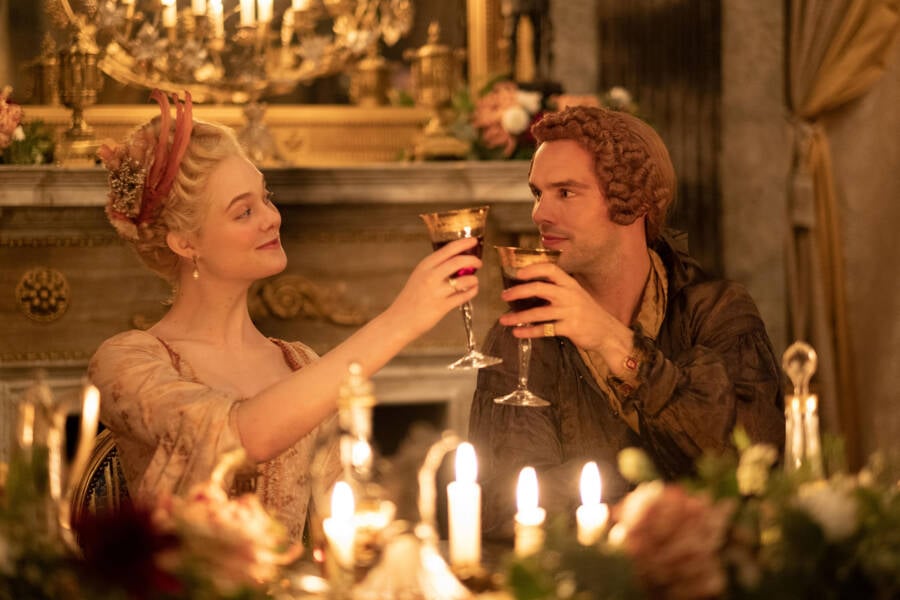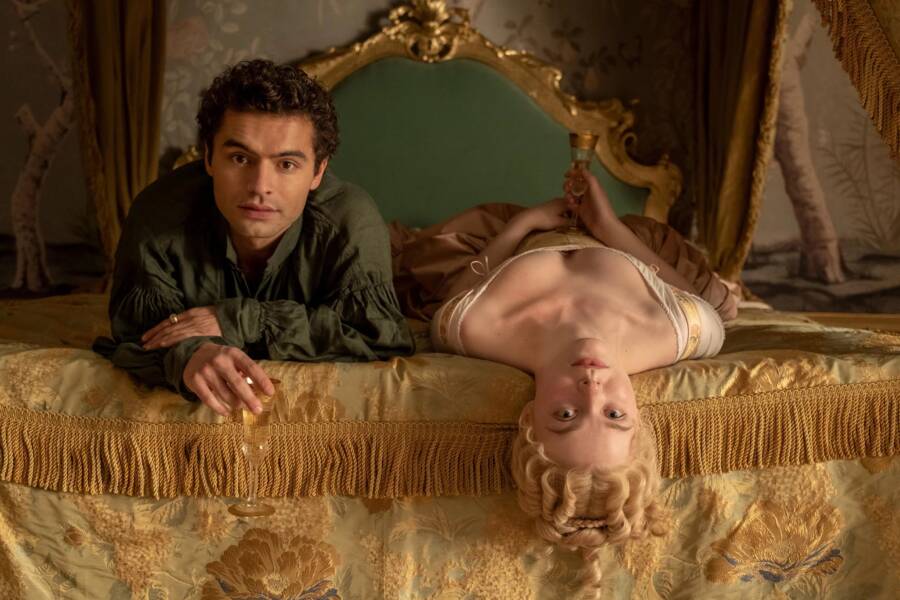The Great Is “Anti-Historical” By Design

HuluCatherine the Great (Elle Fanning) and Peter III (Nicholas Hoult) in Hulu’s The Great.
Hulu’s The Great, starring Elle Fanning and Nicholas Hoult, explores the life of Catherine the Great through a genre-bending, comedic lens, and the series is very aware that it doesn’t represent history well at all.
In fact, the show’s title sequence says that it’s “an occasionally true story.”
According to Slate, the Tony McNamara-created series takes many liberties with the true history for the sake of the show’s narrative.
For example, the show’s version of Catherine arrives in Russia when she is 19 years old and begins her coup on her 20th birthday. The real Catherine, however, arrived in Russia when she was 14 years old and then spent 18 years at court before she ever ascended to the throne.
In the show, Catherine’s husband Peter III is incredibly selfish and woefully unprepared for governing, yet handsome, energetic, and good in bed. In real life? He was known to have been boring — and possibly impotent.
As the Houston Press reports, the series also shows the creation of the Moscow Mule after Catherine’s lover Leo pours ginger beer and vodka into his mouth and chases it with a lemon. When he watches Catherine ride away on a mule, the idea for the famous cocktail comes to him.

HuluLeo (Sebastian de Souza) and Catherine were not actually lovers in real life.
But the Moscow Mule, like many other cocktails, was an invention that first emerged in 20th-century New York, possibly created by a ginger beer maker named Jack Morgan or a bartender named Wes Price.
The show also depicts Catherine inventing bowling, but evidence of humans playing the game dates back much further — to 5200 B.C.E.
A much larger storyline in the show, however, is that Catherine, who was born in Germany, doesn’t understand the culture of Russia or the empire’s people. Her husband Peter III, on the other hand, does.
But in reality, Peter III was also a German-born ruler who barely spoke Russian. Many of his policies were more German than Russian as well, and this contributed heavily to the discontent in his kingdom and his downfall.
Again, the show never claims to be historically accurate — quite the opposite, in fact — so these inaccuracies can’t be held against it.
Indeed, since the series presents information that it specifically acknowledges is false, it could actually prompt viewers to do a bit of digging on their own to find out what really happened during that time period.





